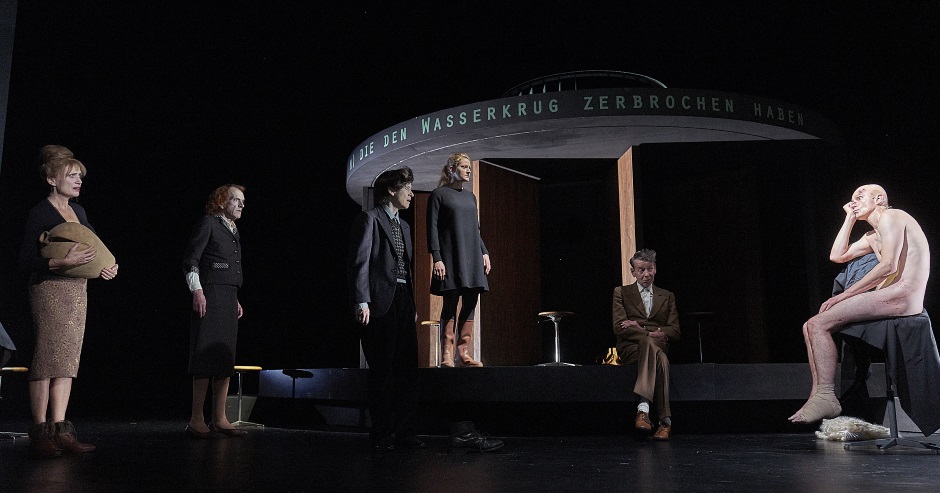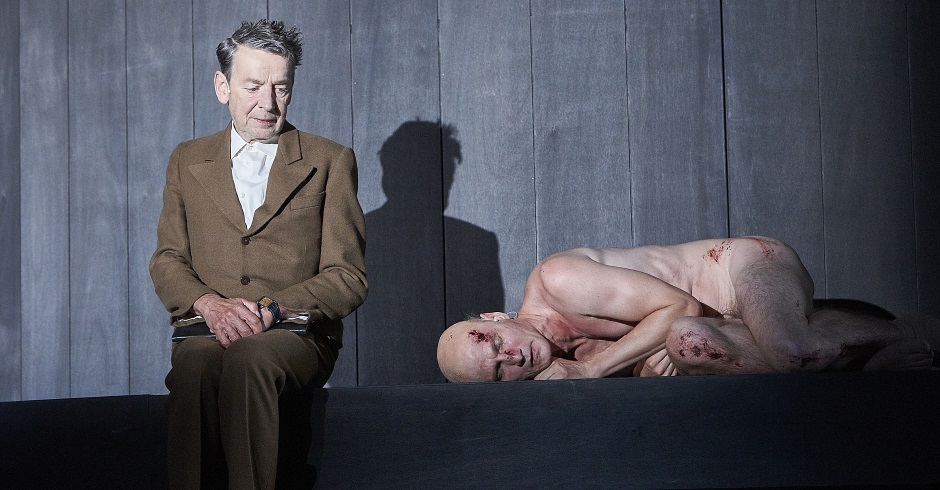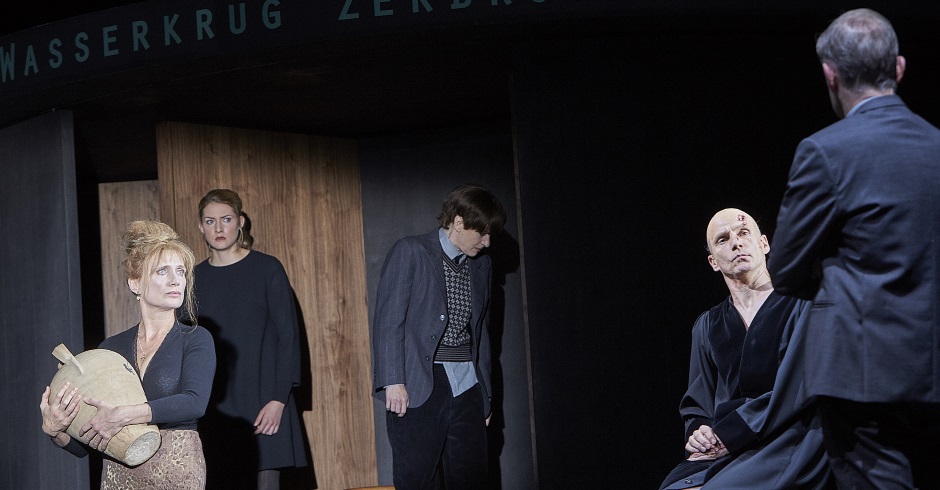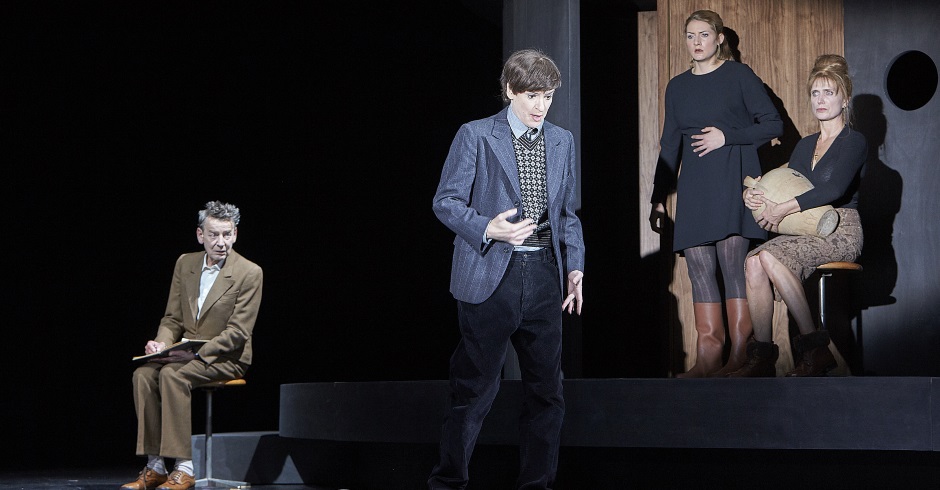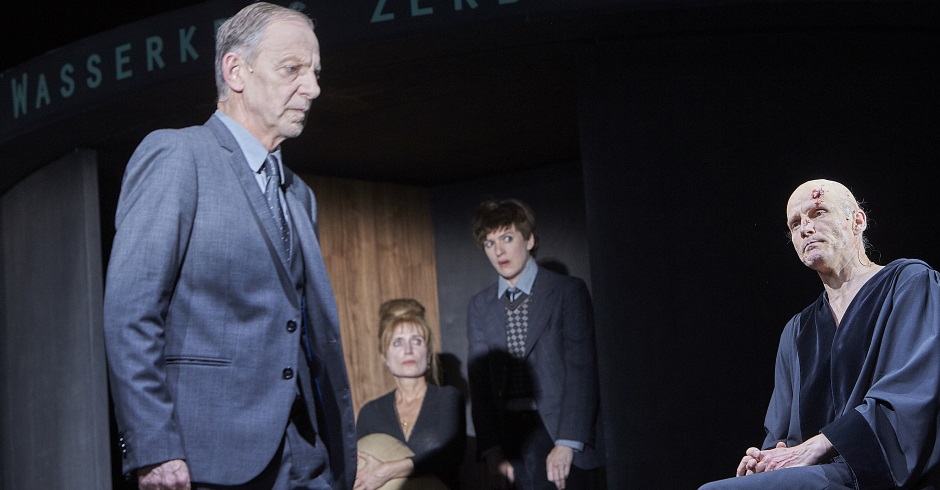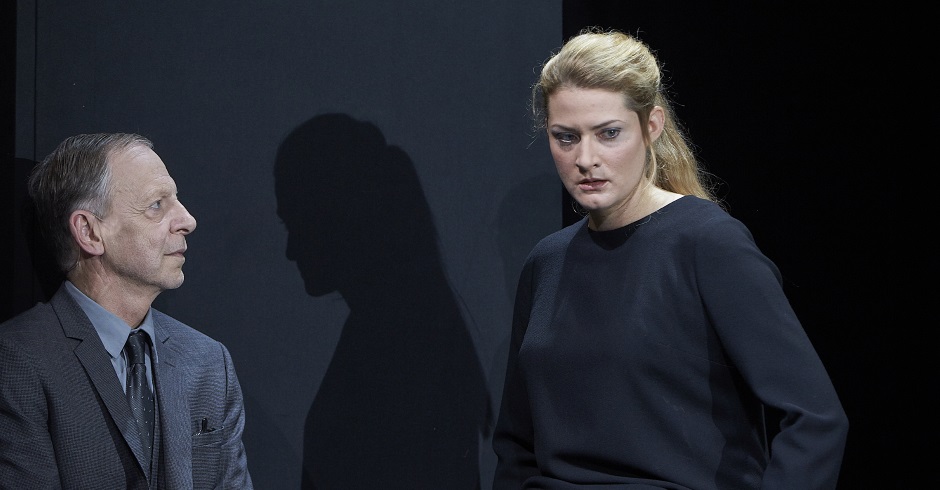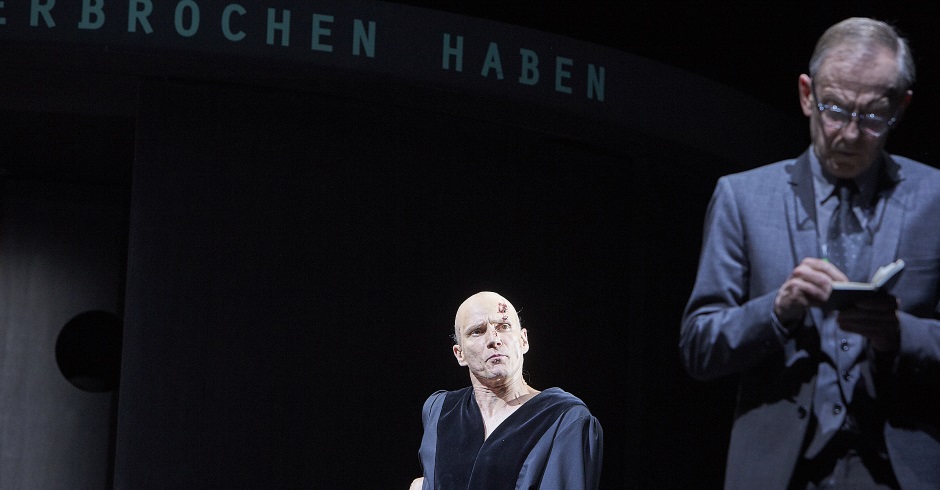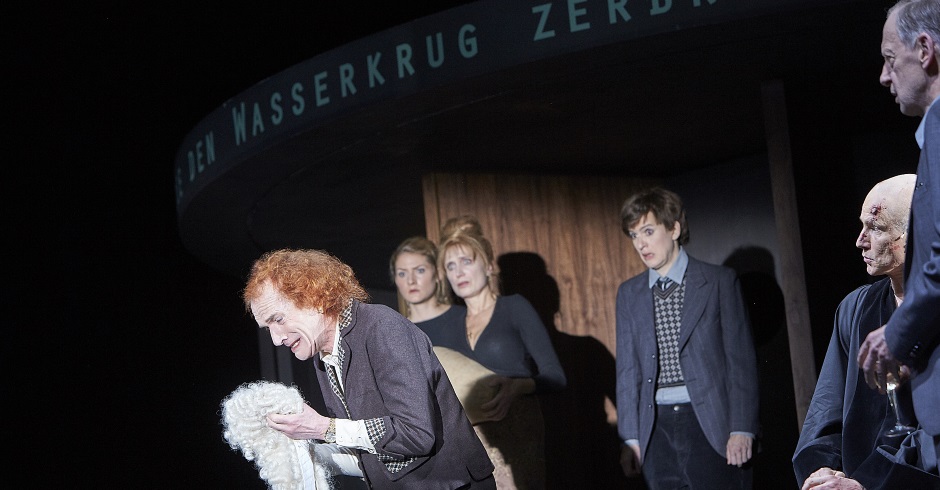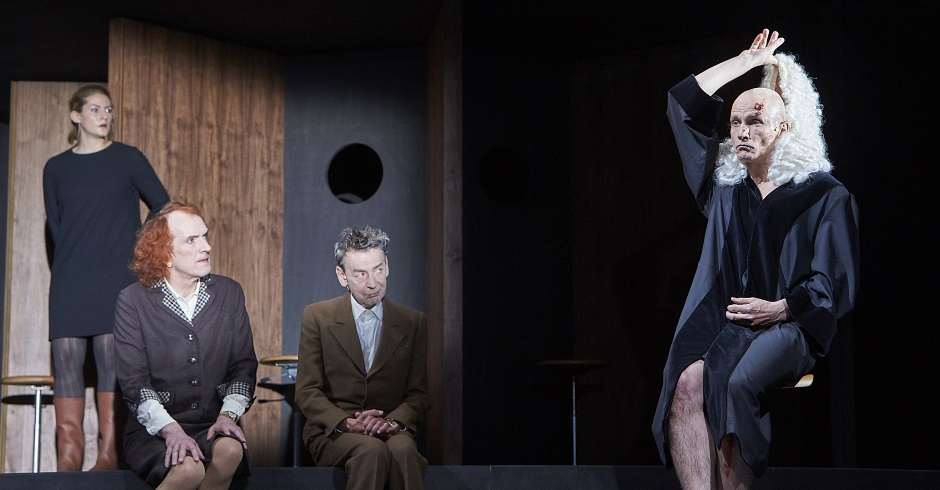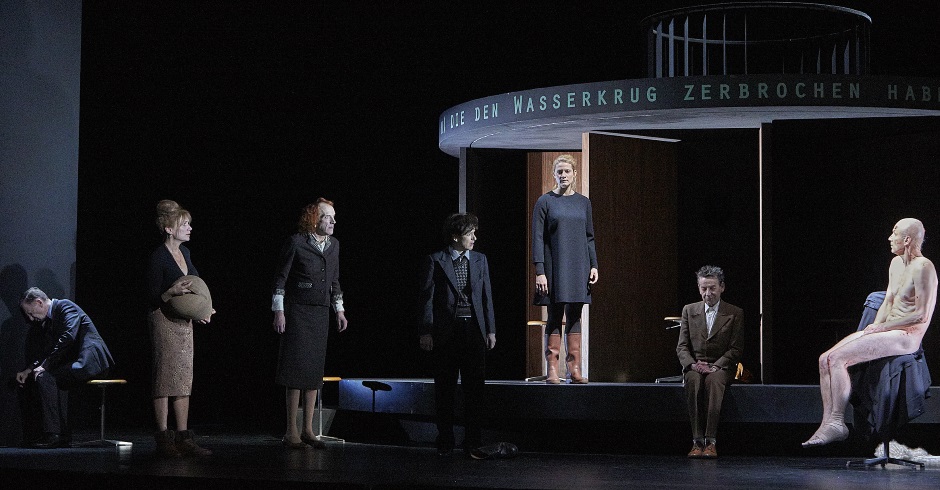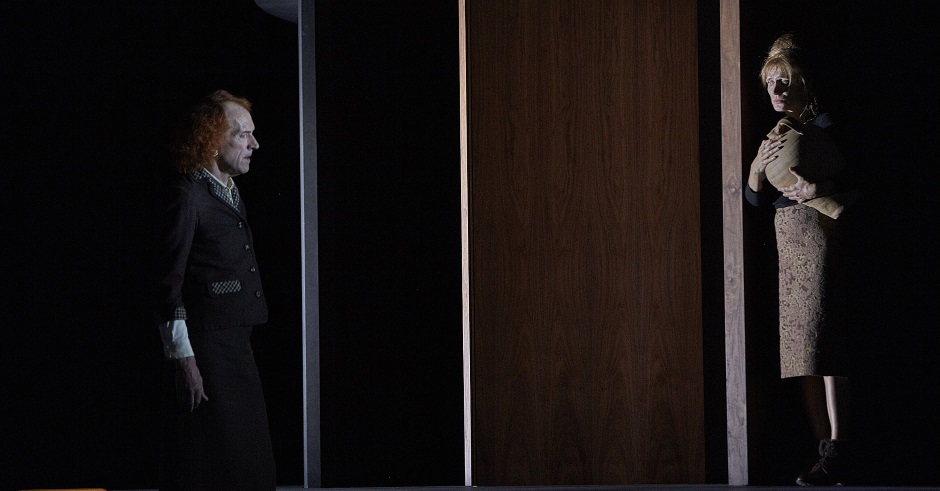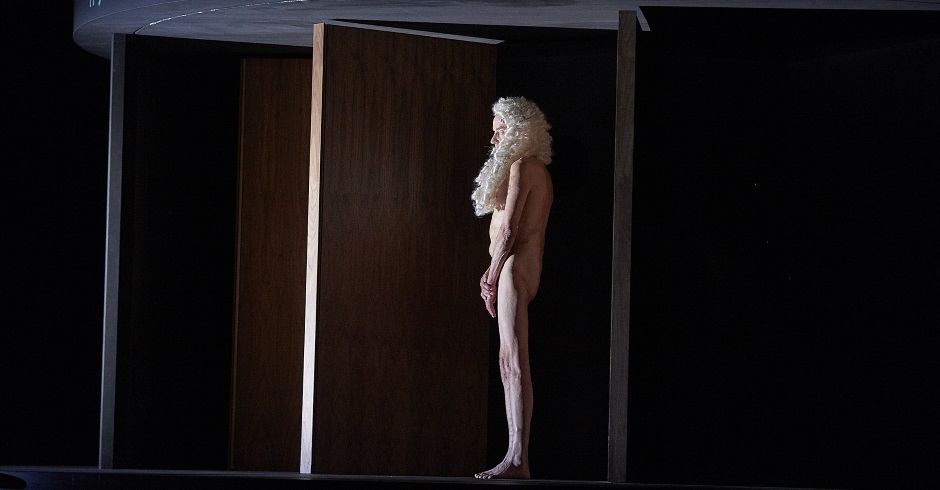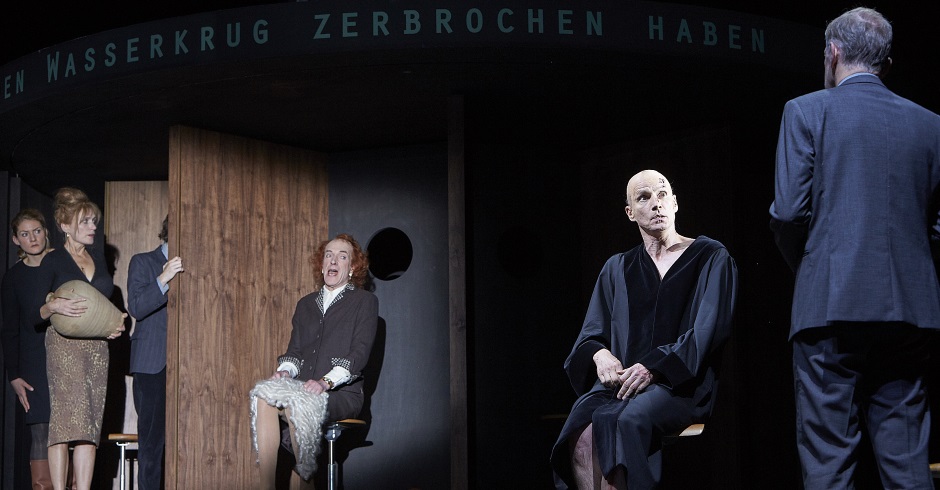
The Broken Jug
Marthe Rull’s jug is broken. After surviving an age of fire and destruction, the valuable piece was broken in Eve’s bedroom – of all places. Ruprecht, Eve’s fiancé, is under suspicion, and Marthe files a suit against her future son-in-law at the court in Huisum. However, Ruprecht’s experience at the scene of the crime was quite a different one: he caught Eve engaged in a nocturnal tryst with an unidentified stranger, who immediately took flight. Adam, Huisum’s local magistrate, is entrusted with the task of shedding light on the case. However, the judge himself comes increasingly under suspicion, entangling himself more and more in false claims and lies, and thus, like King Oedipus, passes judgement on himself. In the end, plaintiff and defendant alike are aware that it was Adam who fled from Ruprecht. Out of affection for Eve, he had crept into her room at night and attempted to blackmail her. However, in this tragicomic play it remains doubtful whether good will ultimately be rewarded and evil punished. In Kleist’s courtroom, the world of those seeking the truth is more akin to Marthe Rull’s pile of shards.
“Barbara Frey stages Kleist’s ‘Der zerbrochne Krug’ at the Pfauen with rigorous severity – and a superlative cast.” Tages-Anzeiger
“Frey placed her interpretation, which as so often was static and rigorous, entirely in the hands of a strong cast. As Frau Marthe, Friederike Wagner is so beastly that her assertion that hair doesn’t grow only on her head and her teeth comes across as entirely plausible. You can almost see how she sprouts ten arms when defending herself against a nocturnal intruder on the way to her daughter’s chamber. Hans Kremer is a restrained, sceptical magistrate whose delivery of Kleist’s verses flows like oil. And, of course, Markus Scheumann – it was about time he lit up an evening of his own. Scheumann’s body was just as convincing as his voice. He is a whimper and a threat all at once, victim and perpetrator, and misery and wiliness are indissolubly combined in his person. The dangerous thing about this is that he cannot be morally judged, because he exposes all his human vulnerability. Scheumann thus makes the villain an unassailably superior, born criminal. There is a second aspect for which Barbara Frey cannot be given enough credit: with typical consistency, she ignores the topicality of the village monster, Adam. It is easy to identify him with the legal case of the disgraced Weinstein. But in Zurich, the case is not alluded to, because as the final scene demonstrates, Frey is interested in the greater scheme of things.” NZZ
“Director Barbara Frey develops pthe delicate threads of the text with the actors with extreme care – and this is frequently her strength. She drives every member of her ensemble to varied, differentiated acting: rhythm, facial expression, gestures – everything is just right.” sda
“Director Barbara Frey needs no striking updates for these references. By trusting in Kleist’s text, she exposes the entire drama of our present time.” Südkurier
“In acting terms, all those involved offer drama at the highest level. However, it is Markus Scheumann who is really outstanding: this is flexible acting in a class of its own. The looks that he hurls into his immediate vicinity, into the distance and towards the sky, the way he gesticulates and then collapses, and modulates his intonation and speech – at breakneck speed, then slow, soft, incidental; aggressive and once again repressed, indeed timid – is something you must see. The audience liked it and applauded generously.” Der Landbote
“The broken jug will never again be intact; the path back to Paradise is blocked. In the last scene of this concentrated, quiet, only moderately comical evening, all the protagonists lie lonely, naked and twisted in their bedrooms: each figure has their neck in the pillory, every single one of them is tied to the wheel of fate.” Frankfurter Allgemeine Zeitung
“And Frey makes the language gleam, turns the punch lines, which Scheumann delivers staccato, into stumbling blocks: in the judge’s robe is a culprit, a weak man; in the role of judge is a strong man! Scheumann, who is often magnificent, has the floundering judge so brilliantly off pat that we can no longer feel him, but merely listen to him breathlessly. You have to: otherwise you will lose your step in this abstract, delicately rhythmical dance and miss out on the wicked humour.” Tages-Anzeiger
“Frey’s compact, rather quiet and restrained production is shaped by splendid dramatic performances. This applies first and foremost to Markus Scheumann, who plays the classic role of the elderly magistrate Adam – long since driven out of the paradise of innocence – in a truly demonic manner. As the exposed trial judge, he writhes from lie to lie like a serpent, until the web of lies collapses, leaving him no option but to flee. Hans Kremer plays a reticent and rather hesitant magistrate Walter, who is more interested in saving face than finding out the truth. Friederike Wagner plays the widow Marthe Rull lamenting her broken jug with vociferous indignation, while Lisa Katrina Meyer portrays her daughter Eve, whose emotional distress is touching, with convincing restraint.” seniorweb.ch
- Direction
- Barbara Frey
- Set Designer
- Muriel Gerstner
- Costume Designer
- Esther Geremus, Lejla Ganic
- Lighting Designer
- Rainer Küng
- Dramaturg
- Andreas Karlaganis
- Assistant Director
- Marco Milling
- Assistant Stage Designer
- Marie Hartung
- Assistant Costume Designer
- Liv Senn
- Prompter
- Gabriele Seifert
- Stage Manager
- Aleksandar Sascha Dinevski
Image gallery & Videos

